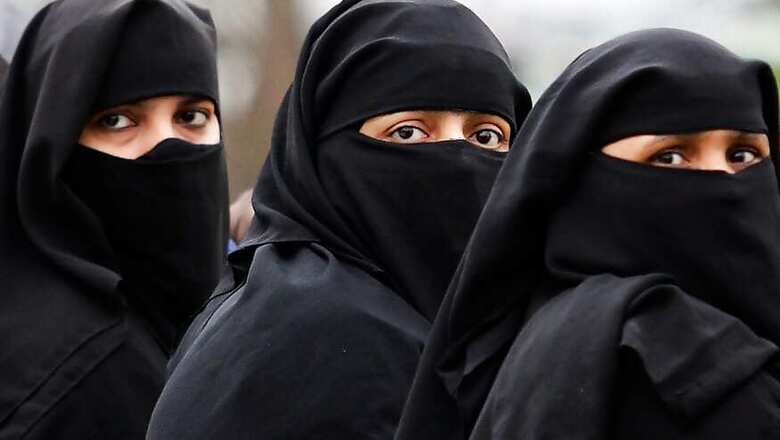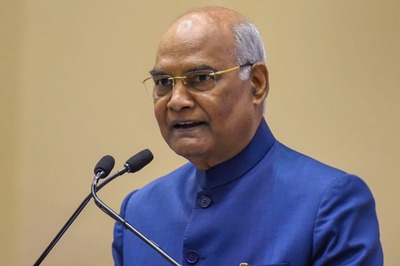
views
Bhopal/New Delhi: First it was the Indian Christian Marriage Act 1872, then came the Parsi Marriage and Divorce Act 1936, followed by the Hindu Marriage Act 1955 and the Hindu Succession Act 1956. India, a secular democratic republic, has codified family laws for all major religions, except Islam. And while the idea of Uniform Civil Code (UCC) is still at a nascent stage, buoyed by the recent Supreme Court verdict declaring instant triple talaq unconstitutional, groups of Muslim women have proposed a law governing Muslim family norms to ensure gender justice and do away with adhocism.
Interestingly, much like legal fight against instant triple talaq, these Muslims women are not only getting support from women across communities but also from sections of the Sangh parivar, making it appear like a possibility in near future.
Bharatiya Muslim Mahila Andolan, an advocacy group, has proposed a draft for ‘Muslim Family Law 2017’, which it claims is a result of nine years’ efforts by Muslim women from 15 states. BMMA activists say they are reaching out to women MPs across parties to ensure that Parliament takes up the issue in the next session to ensure that “not only triple talaq is prohibited but other brutal and inhuman practices like polygamy and nikah halala are also ended. There should also be a common procedure, according to Islam, with regard to marriage and divorce.”
Zakia Soman, co-founder of BMMA said the proposal is as good as a draft law and looks beyond the issues of triple talaq and marriage, taking into account inheritance and adoption, which are totally skewed in the favour of men due to misogynistic stand of All India Muslim Personal Law Board.
News18 has accessed a copy of the proposal, which is being sent to the Ministry of Women and Child Development and the National Commission for Women.
The proposal – draft Muslim Family Law 2017 – not only seeks total ban on instant triple talaq but also prescribes the procedure of divorce, giving women an equal say.
During the arguments in the triple talaq case in the Supreme Court in May, senior advocate Indira Jaising, arguing for Bebaak Collective, one of the petitioners, had stated that “While divorce in Islam was judicial (resort to courts) for a wife, it was extra-judicial (at the comfort of home and his own will) for a husband.”
This argument seems to have formed the backbone of the draft proposal. According to the draft, whoever wants divorce, regardless of gender, the method has to be Talaq-E-Ehsan, which mandates a compulsory period of gaps between the three utterances of divorce coupled with efforts of arbitration and mediation. The one who seeks divorce will have to file an application with Qazi, Darul Qaza or a court. Then an arbitrator will call the other party for mediation and there will have to be a three-month gap before the marriage comes to an end.
Noorjehan Niaz, another co-founder of BMMA said, "Khula (divorce sought by woman) will no more be dependent on the consent of a man. It will no more be extra judicial for the man and judicial for the woman. Our draft seeks to make both judicial."
Further, the proposed draft makes it difficult for either of the spouses to not cooperate in the divorce proceedings. It states that if a spouse refuses to cooperate in the reconciliation or dissolution of marriage proceedings initiated at the behest of the other spouse, it may amount to misconduct and may be a ground for approaching the court for dissolution of marriage.
The draft also seeks an explicit end to the practice of polygamy, nikah halala and muta (temporary) marriage. The aspect of penalty has been left for the parlimentarians to debate and decide.
It also seeks that marriage should only take place when the Muslim woman is of 18 years and the Muslim man is of 21 years. With regard to Mehr, which forms a compulsory payment by the groom to the bride on the occasion of the marriage, it seeks that Mehr cannot be less than what the groom earns annually.
It states that every marriage needs to be registered after it's enactment and the clerics who conduct the marriage should be made accountable to such a law.
This comes at a time when the AIMPLB executive board is meeting in Bhopal. Earlier, Maulana Wali Rahmani had told News18 that the Supreme Court verdict on triple talaq ensures protection for personal law and Uniform Civil Code is impossible in India.
Soman, however, said the proposed draft seeks "to achieve harmony between the tenets of the Quran and the Constitution".
"It is possible to achieve this because both of them speak of Justice. The only problem is the AIMPLB, which tries to bring out rules that suit its own patriarchal worldview. If all communities' personal laws have been codified, then why exclude only the Muslims?" asked Soman.
The draft also speaks elaborately on the aspect of inheritance and bats for equal rights for sons and daughters. The daughters' share will be equal to that of the sons' by even the way of Hiba or gift in Islam. It also states that both father and mother will be the natural guardian of the child.
Draft proposal of Muslim Family Law 2017 also takes into account the case of adoption, but hasn't gone in detail to formulate a process as Islam prohibits adoption. "In case a Muslim couple wishes to adopt, then they are free to do so under The Juvenile Justice (Care and Protection) Act of 2000, which after the 2006 amendment, allows any Indian citizen to adopt a child who is legally free for adoption," Niaz told News18.
When asked, Muslim Rashtriya Manch leader Indresh Kumar said since the demand is coming from the Muslim society it must be looked into. "Nowhere in the world there is a Muslim Personal Law Board. It is only here and has no constitutional, Islamic or social validity. We asked Muslims about the personal laws -- there are different sects and practices within them, but over the period of time some socially regressive practices creeped in the religion like polygamy and halala. These have no backing from the Quran or the Constitution," he said.
"When the triple talaq verdict came out, Muslim women got justice... their religion also commands watan parasti and obedience to the rule of the land," he added.




















Comments
0 comment